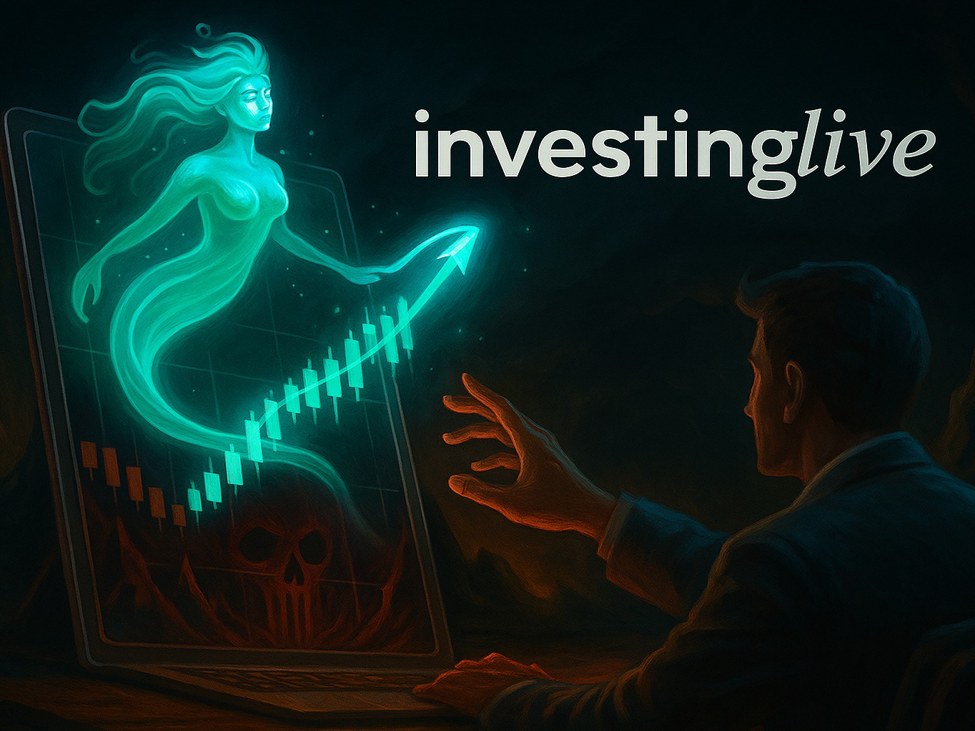Blog of a forex trader
The truth about prop firm trading
|
Convictions, beliefs, and trading
|
Hedging in forex
|
When not to trade
|
Articles worth reading:


For those new to forex and trading – a digest of everything you should know about foreign exchange markets, fx trading and how to become a forex trader.
What is forex?
Forex is an abbreviation for foreign exchange market – the largest financial market in the world, open 24 hours a day, from Monday to Friday, and with daily trading volume of $7.5 trillion (according to the The Bank for International Settlements). It is also the most liquid market in the world. Unlike in the stock market, there is no central exchange in the forex market or a place which would record the market price of currency pairs. Instead, the telecommunication networks (ECN’s – Electronic Communications Networks) facilitate currency trading transactions between all market participants, like central banks, commercial banks, brokers (who act also on behalf of individuals), investment management firms, investment funds, etc.
The foreign exchange market
The foreign exchange markets facilitate currency exchange for international trades, risk hedging against future exchange rate fluctuations, investments as well as currency speculations. FX market is not only about SPOT currency exchange. Various other instruments, like futures contracts, forex swaps, as well as currency options make up a large portion of daily trading volume. Almost all trading today is electronic trading, with the use of various trading platforms, like MetaTrader or TradingView used in retail trading. There are seven major currencies traded on the forex markets: EURUSD, USDJPY, USDCAD, USDCHF, GBPUSD, AUDUSD, NZDUSD. They account for most of the forex market turnover. However, forex brokers facilitate trading on a wide range of instruments, including a selection of less popular international currencies, indices, metals, etc.
Forex trading account
Individual forex traders who trade small volumes cannot transact with the large players on the financial markets directly – they need a trading account with a forex broker who is their gateway to the interbank currency market. Brokerage firms provide retail investors also with trading platforms and the possibility of using leverage for their forex trades – margin trading.
Unlike brokers that facilitate stock trading, forex brokers do not have to be regulated or audited. It all depends on the country they are based in. Some exotic island states allow companies to offer brokerage services without any regulation, other have some oversight institutions, but let’s face is – they have much smaller power and capabilities than regulators in the EU, USA, Australia or other developed countries. However, good regulation is only a good start, since there are many other factors which decide whether given broker is good and trustworthy.
ECN/STP brokers vs Market Makers
There are two types of brokers – ECN/STP brokers and market makers. In the first model, the broker is a middleman between the trader and the foreign exchange market. It is connected via Electronic Communication Network (ECN) with its liquidity providers, usually big international commercial banks, and passes on instantly each currency trade to its partners, picking the once offering the best price. Such forex brokers are commonly called ECN brokers or STP brokers. They make money on commissions, spread and swaps, so fx trading with them is usually more expensive, since this is their only source of income. In the second model, the broker is the opposite side of every transaction – like in a casino. They are cheaper in terms of spread, swap and sometimes even don’t charge a commission, so opening and holding trades with them is cheaper, but one has to be aware of the fact that in this business model every losing position of a forex trader is a profit to the brokerage firm, and every winning trade is a loss. Since there is a clear conflict of interest in place, this is where the need for strong regulation kicks in.
Forex trading
Technically, forex trading is about finding a currency pair with the biggest imbalance between two currencies (base currency and counter currency), and thus the biggest price move potential, entering a buy or a sell trade and monetizing on the price move, while managing a position to limit the risk. In that respect, it is similar to finding the best stock on the stock market. However, forex markets can be more volatile and are moving 24 hours a day. This may translate to higher profit potential, but also higher risk. This being said, speculative trading without knowledge and experience poses a serious threat to a trading account.
There are many variables which drive the currency prices. These include economic factors, central banks announcements and their interest rates decisions, data from the real economy, and political events, to name just a few. The FX market is also inter-related with other markets like futures markets, bond markets, stock markets, etc. Gathering and analyzing market data is an important part of a trading day. This is called fundamental analysis. Technical analysis, on the other hand, focuses on the movements of the price of a given currency pair, and the patterns that are drawn on the chart. Today, a vast amount of trading decisions are made based on the technical factors (technical analysis of a pair) – both by forex traders and trading bots that operate 24 hours a day in search for an opportunity.
Margin trading
Transactions on the forex market are rarely settled by cash. Unlike on the stock markets or in currency exchange offices, a trader does never physically own any currency, thus does not have to have a full value of the position in cash to open a trade. Brokers offer various levels of leverage ranging from 1:5 to even (OMG!) 1:1000. A typical leverage of a forex trading account is 1:100, which means that the trader needs to have only 100 USD on deposit to open a 10 000 USD position. However, one has to be aware of the fact that the leverage is both a blessing and a curse in forex trading, since it allows both for higher earning and higher losses. Since most individual traders – especially the novice once – tend to have more losing trades, the leverage often works against them. This is why in many countries regulators imposed maximum leverage levels, like 1:33 in the EU. Always use the leverage very carefully when you trade on forex markets, especially during the learning period.
The truth about trading on forex markets
One has to be aware of the fact that forex trading is a numbers game. Although a lot of emphasis and effort is put on analyses to make sure that the odds are in favour, forex trades can move in a totally different way than expected, and the outcome of every trade is random and unpredictable. The outcome of every individual trade is unique and does not determine the outcome of another trade. The distribution of winning and losing trades is also random. Accepting and integrating this is very hard for many forex traders. This is why many people fail, although they are considered to be intelligent, disciplined or successful. But they are not able to withstand the pressure and emotions which accompany every forex trade. Psychology is very crucial in trading, but this is true for trading on any other financial markets. So trading forex is also a path of constant personal development. This is one of the reasons why I decided to share my personal experience related to psychological aspects of trading, including some details of the coaching sessions I had.
How to learn forex trading
Just to clarify – I don’t sell any courses, I don’t do mentoring and I’m not a forex trading educator. I’m a trader, and I earn money trading. I write this blog to share my experiences and observations. I’ve been doing it for a while yet, and what I could recommend to anyone interested in becoming a trader is to pick one currency pair, sit in front of your screen and observe it, look for patterns, and learn its behaviors. And study general knowledge about forex trading as well as work on psychological aspects of trading. Spend time working on your trading system and forget about opening any trading positions before you have your first system written down and backtested. This way you will have a trading system that suits you best and is in line with your personality, the way you see things, as well as the way you act. Making any shortcuts like buying a system (which will most likely be too complex or too complicated for a novice trader) or picking any system someone presents on YouTube is a really bad idea. Forex markets will take any money from unprepared and overexcited newcomers. You can become rich with forex trading, but it will not be easy or fast. So take your time, and be patient. The rewards are worth it 🙂
To sum up
FX trading can be an exciting career path, as well as a very good source of income, if done the right way. However, it is far from being easy and it requires time and effort to learn how to trade forex, as well as how to function under extreme psychological pressure. Navigating in an environment dominated by big players, like investment banks and other financial firms, can be very challenging for individual investors, but again – when mastered, forex trading can give lot of profit, satisfaction and freedom.
I hope this short introduction to forex trading was interesting and useful and that this blog will be a valuable source of information both for those who start forex trading, but also for some of my more advanced colleagues.
Success in trading!
Etienne
analysis brokers coaching cross-pairs data demo economic data emotions in trading forex broker hedging job of a trader life of a trader market analysis market data MetaTrader MT4 MT4 tricks options prop firm prop firms psychology in trading risk management Saxo Bank Saxo Trader SaxoTraderGo tips trader's workshop trading trading 101 trading day trading psychology trading strategies trading strategy trading system tradingview

 Why at all think, talk, and write about things like convictions or beliefs of a forex trader? After all, trading is about making money, not psychology or some esoteric stuff. Is it really so? Isn’t it the trader that makes money? Or loses money, since according to statistics provided by brokers, around 70-90% of traders lose money. Traders are humans with their human flaws, traumas, and other psychological or emotional baggage that may influence trading. If we consider all this, a closer look at the trader’s mindset may lead to interesting discoveries and solutions to problems they encounter in their daily trading. Our convictions and beliefs may play a more…
Why at all think, talk, and write about things like convictions or beliefs of a forex trader? After all, trading is about making money, not psychology or some esoteric stuff. Is it really so? Isn’t it the trader that makes money? Or loses money, since according to statistics provided by brokers, around 70-90% of traders lose money. Traders are humans with their human flaws, traumas, and other psychological or emotional baggage that may influence trading. If we consider all this, a closer look at the trader’s mindset may lead to interesting discoveries and solutions to problems they encounter in their daily trading. Our convictions and beliefs may play a more…  What is hedging? Hedging is a risk management strategy. It allows us to limit drawdown on losing trades as well to protect open positions in an event of rapid price fluctuations. Hedging a position can be nothing more than opening a second trade of the same value, on the same currency pair, but in the opposite direction (direct hedging). For example, if one wants to hedge a short position, opening a long position is required, and vice-versa. Once the opposite position is open, the losing trade stops generating losses, since the loss on one trade is offset by profit on the other one. This is the simplest hedging strategy forex…
What is hedging? Hedging is a risk management strategy. It allows us to limit drawdown on losing trades as well to protect open positions in an event of rapid price fluctuations. Hedging a position can be nothing more than opening a second trade of the same value, on the same currency pair, but in the opposite direction (direct hedging). For example, if one wants to hedge a short position, opening a long position is required, and vice-versa. Once the opposite position is open, the losing trade stops generating losses, since the loss on one trade is offset by profit on the other one. This is the simplest hedging strategy forex…  This article covers the situations which are not related to the market or the system, and yet affect trading. These are the potential contexts in which you shouldn’t really trade, because you will most likely make a trading error and lose money. It is part of my strategy series, for both new as well as more experienced traders. A strategy for trades and trading activities management in case of various situations that may occur in life should be a part of any trading plan. Or at least you should have a general protocol on what to do in different situations, to avoid trading under emotions and making mistakes. Some of…
This article covers the situations which are not related to the market or the system, and yet affect trading. These are the potential contexts in which you shouldn’t really trade, because you will most likely make a trading error and lose money. It is part of my strategy series, for both new as well as more experienced traders. A strategy for trades and trading activities management in case of various situations that may occur in life should be a part of any trading plan. Or at least you should have a general protocol on what to do in different situations, to avoid trading under emotions and making mistakes. Some of…